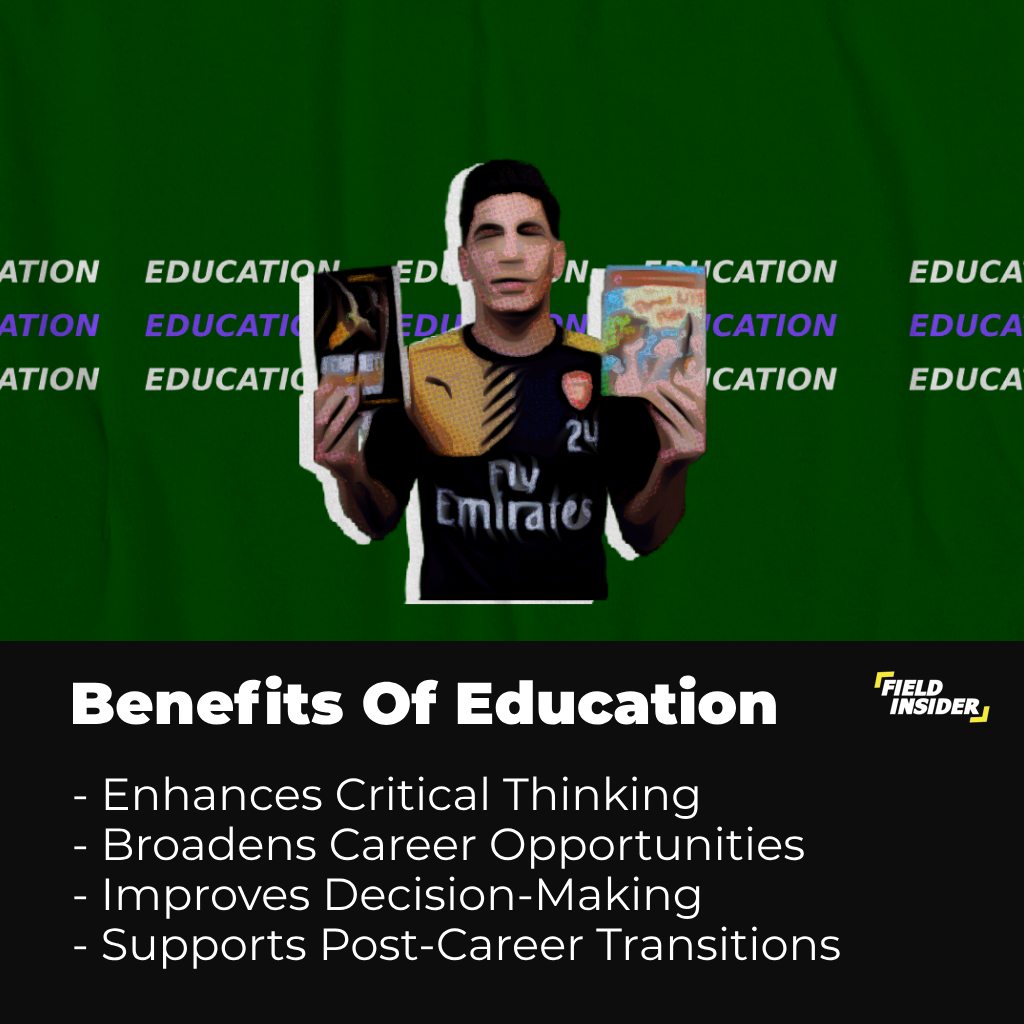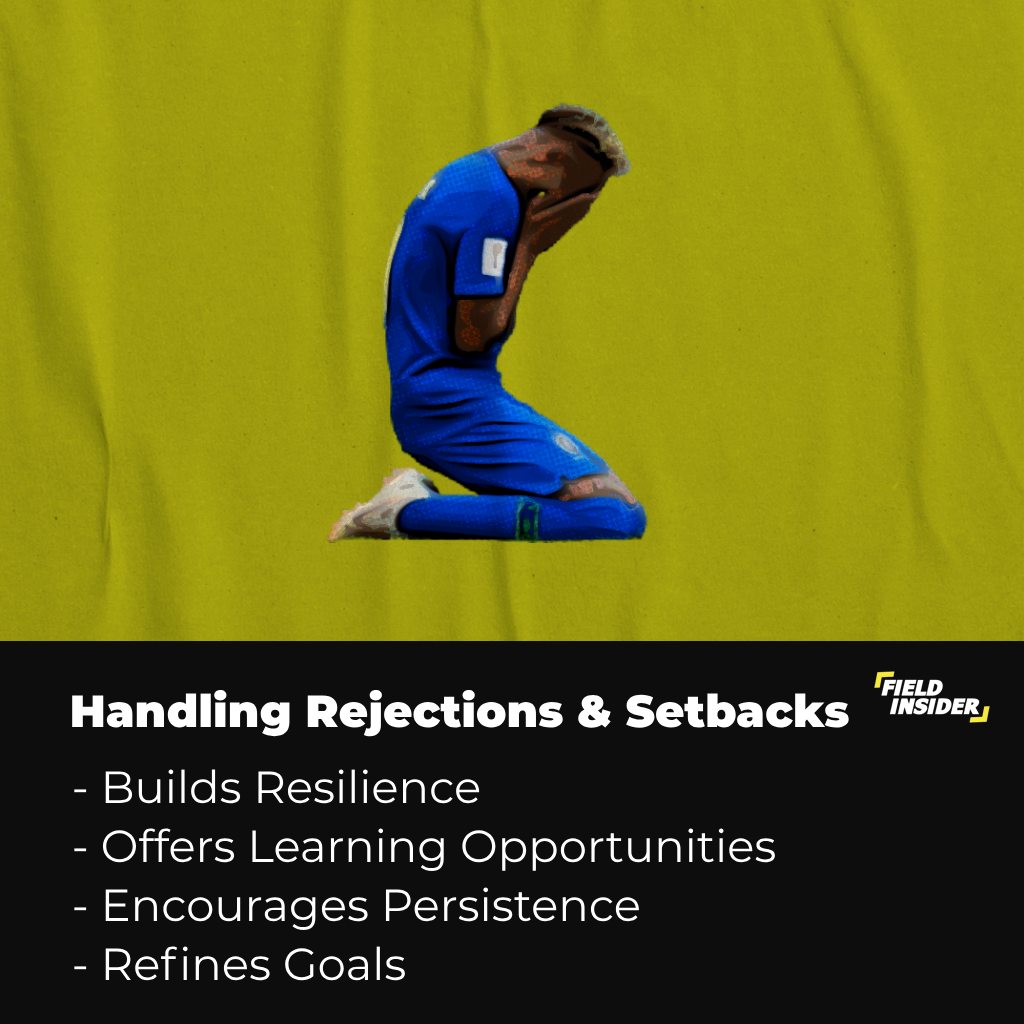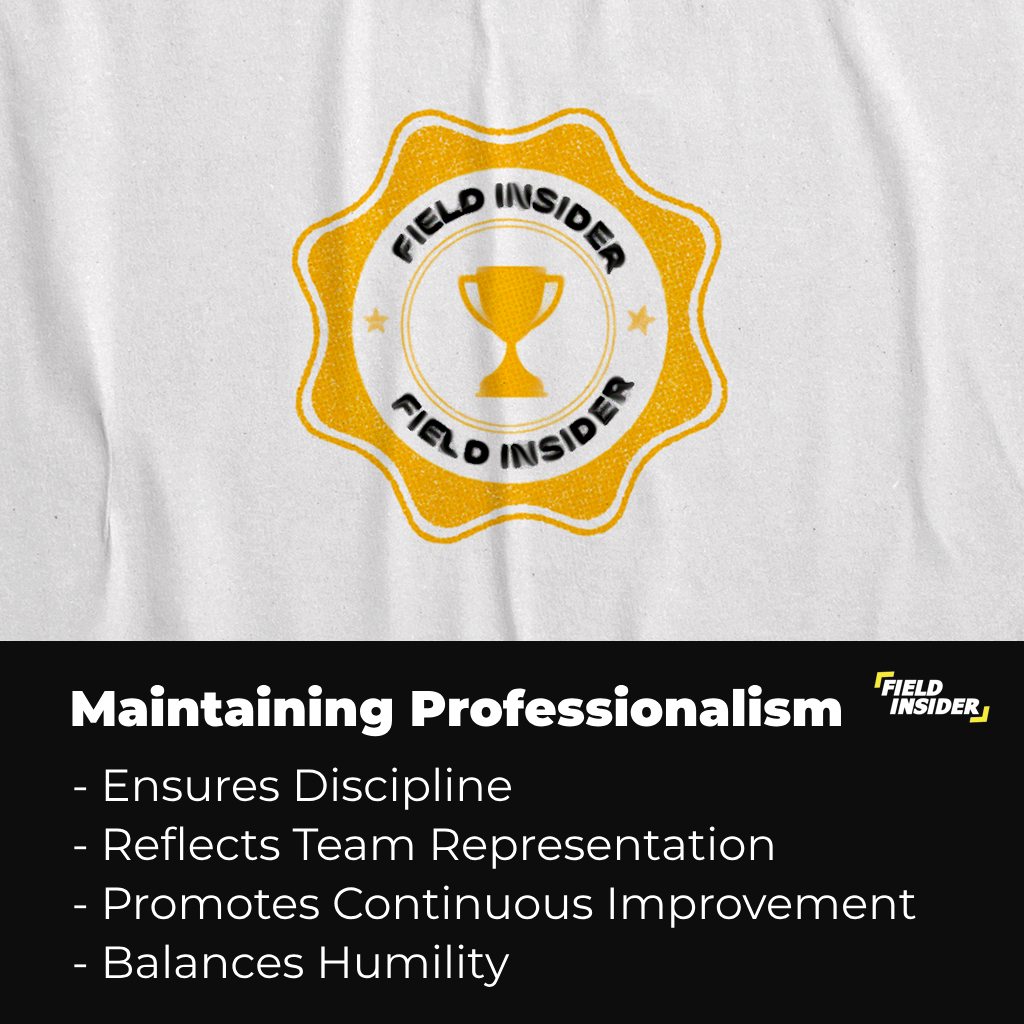How To Become A Professional Football Player
Embarking on the journey to become a professional football player is a dream shared by countless young athletes around the globe. It’s a path filled with immense challenges, fierce competition, and the necessity for unwavering dedication and resilience.
However, beyond the allure of fame and the passion for the game lies a complex process that demands a holistic approach to development, both on and off the field.
This comprehensive guide delves into the essential steps and strategies required to navigate the journey from aspiring athlete to professional football player.
Key Takeaways
| Key Takeaways | Description |
|---|---|
| Talent vs. Hard Work | Both innate talent and relentless hard work are crucial in becoming a professional football player. |
| Starting Early and Education | An early start in youth leagues and a balanced focus on academics can significantly impact your football career. |
| Skill Development | Mastering the basics, maintaining physical fitness, and developing tactical awareness are essential. |
| Showcasing Talent | Participating in tournaments and creating highlight reels are effective ways to get noticed by scouts. |
| Networking and Mentorship | Building connections and seeking guidance from experienced professionals can open up opportunities. |
| Handling Rejections | Learning from failures and staying motivated are key to overcoming setbacks. |
| Professionalism | Discipline, work ethic, and humility are vital traits for sustaining a career in professional football. |
Understanding the Path
The roadmap to becoming a professional football player involves more than just raw talent or chance encounters. It’s a structured journey that demands an early start, consistent hard work, and strategic navigation through the ranks of youth football.
Talent vs. Hard Work
The debate between talent and hard work has long been a topic of discussion in sports circles. Natural ability undoubtedly offers an initial advantage, allowing players to stand out at an early age.

However, the sports landscape is replete with tales of naturally gifted athletes who failed to reach their potential due to a lack of discipline, dedication, and hard work.
Conversely, there are numerous stories of players with moderate talent who climbed the ranks to professional status through sheer determination and relentless improvement.
For aspiring footballers, embracing a work ethic that matches their ambition is non-negotiable. Engaging in individual football training can provide focused improvement areas for players committed to their personal and professional growth.
Importance of Starting Early
The journey to become professional football player begins at a tender age. Early exposure to the sport through youth leagues not only ignites a passion for the game but also lays down the essential foundations of skill development, teamwork, and competitive play.
Starting early allows players to accumulate years of experience, giving them a significant advantage as they progress through the ranks.
Moreover, early participation in youth football introduces young athletes to the discipline and routine of regular training sessions, matches, and the importance of balancing football with academic responsibilities.
Youth leagues and football academies serve as the breeding grounds for tomorrow’s football stars. These institutions offer more than just a platform for competitive matches; they provide a comprehensive development program that includes technical training, physical conditioning, and mental coaching.
By enrolling in a reputable youth football academy, young athletes gain access to experienced coaches, top-notch facilities, and exposure to a higher level of play. Moreover, youth leagues and academies play a critical role in offering players their first taste of structured competition.
Developing Skills
Mastering the art of football requires a multifaceted approach to skill development. It’s not just about having a strong leg or being able to run fast; it encompasses a broad spectrum of physical, technical, tactical, and mental skills.
Mastering the Basics: Technique and Fundamentals
The foundation of any great professional football player is their technical skill. This includes everything from basic ball control, dribbling, passing, and shooting to more advanced techniques like first-touch control under pressure, precision in set-pieces, and the ability to execute effective tackles.
Developing these skills requires countless hours of practice, both in team settings and through individual football training. Technical mastery is achieved through repetition and consistency. Drills that focus on the fundamentals of ball handling, movement, and coordination are crucial.
Physical Conditioning and Fitness
A player’s ability to maintain high performance levels throughout a game can be the difference between winning and losing. Physical conditioning includes strength, stamina, speed, agility, and flexibility training—all vital for enduring the demands of a competitive match.
Implementing a rigorous physical training in football regime is essential. This might involve gym sessions focused on building core strength and muscle endurance, sprint drills to enhance speed and explosiveness, and flexibility routines to prevent injuries
Tactical Awareness and Game Intelligence
Understanding the tactical aspects of football is what separates good players from truly great ones. Tactical awareness involves reading the game, understanding different football formations and strategies (like the 4-3-3 formation), and making intelligent decisions on the pitch.
Developing game intelligence requires studying the game closely, both through playing and observation. Watching professional matches, analyzing team tactics, and discussing strategies with coaches and teammates can provide invaluable insights.
Continuous Learning and Adaptation
The world of football is always evolving, with new techniques, tactics, and fitness regimes emerging. Staying informed about the latest trends and being willing to adapt and learn new skills is crucial for any player aiming for a professional career.
This might involve seeking feedback from coaches, attending workshops or training camps, and always being on the lookout for opportunities to learn and grow.
Pursuing Education
Balancing the pursuit of a professional football career with educational aspirations is a crucial strategy for aspiring athletes. Education not only serves as a vital backup plan but also enriches a player’s understanding of the game and life beyond the pitch.
Balancing Academics and Athletics
Achieving a balance between academic pursuits and athletic training is challenging but essential. Education provides a safety net for athletes, ensuring they have qualifications and skills to fall back on if a professional sports career doesn’t materialize or prematurely ends due to injury.
Incorporating football for kids programs that emphasize the importance of education alongside sports training can set a strong foundation from an early age. These programs often advocate for a holistic development approach, ensuring young athletes don’t neglect their studies for sports.
Benefits of Education for Professional football player
An educated athlete brings more to the table than just their physical abilities. Critical thinking skills, learned through education, enable players to analyze their performances, understand complex game strategies, and make smarter decisions under pressure.

Furthermore, players with a solid educational background are better positioned to manage their finances, navigate contracts, and pursue post-retirement careers, whether within football (such as coaching, management, or analysis) or in entirely different fields.
Utilizing Scholarships and Academic Support Programs
For talented young athletes, scholarships can provide an avenue to both higher education and elite sports training. Many universities and colleges offer sports scholarships that cover tuition fees in exchange for competing in their athletic programs.
Academic support programs within sports academies and educational institutions are also vital. They provide tutoring, study sessions, and flexible class schedules to accommodate training and competition demands. Leveraging these opportunities can help athletes prepare for a well-rounded future.
The Role of Online and Flexible Learning Options
The advent of online learning has revolutionized education for athletes, offering flexible study options that can be tailored around training and competition schedules.
Online courses and degree programs allow players to continue their education from anywhere, ensuring that travel for matches or training camps doesn’t hinder academic progress.
Showcasing Talent
For aspiring professional football players, talent alone is not enough to guarantee success; visibility is key. Showcasing talent effectively can open doors to opportunities at higher levels of play, from youth academies right up to professional clubs.
Participating in Competitions and Tournaments
Competitions and tournaments are the primary arenas where young talents can shine. These events are often attended by scouts looking for promising players to add to their teams.
Players should aim to participate in as many high-level competitions as possible, including local leagues, school tournaments, and club matches. Special events like cups and showcase tournaments are especially valuable, as they often attract a wider audience of scouts and agents.
Getting Noticed by Scouts and Coaches
Standing out in the field requires more than just exceptional skill; it demands consistency, a strong work ethic, and the ability to perform well in team settings. Scouts and coaches look for players who not only have technical skills but also show leadership, discipline, and the ability to learn and adapt.
To increase chances of being noticed, players should focus on building a strong presence on the field, communicating effectively with teammates, and demonstrating a positive attitude, regardless of the match outcome.
Building a Strong Highlight Reel
In today’s digital age, a well-crafted highlight reel can be a powerful tool in a player’s arsenal. A highlight reel should showcase a player’s best moments, including goals, assists, defensive plays, and examples of technical skill and game intelligence.
It’s important to keep the video concise, professional, and focused on showcasing a broad range of abilities. Players can share their highlight reels on sports recruitment platforms, social media, or directly with clubs and academies they’re interested in joining.
Utilizing Social Media and Digital Platforms
Social media and digital platforms offer another avenue for players to showcase their talent and build a personal brand. Regularly posting training videos, match highlights, and updates on football-related activities can attract attention from scouts, coaches, and even sponsors.

However, it’s crucial to maintain professionalism on all online platforms, as scouts and clubs often review a player’s social media presence as part of their overall assessment.
Measuring the Foundations of a Future in Football
The journey to professional football is greatly influenced by the quality of the developmental environment. A study assessing players’ perceptions i.e “Examining the Development Environments of Elite English Football Academies: The Players’ Perspective” revealed key elements vital to their growth.

The findings, illustrated in the bar chart, underscore the importance of a supportive and communicative environment that prioritizes long-term development.
‘Support Network‘ topped the list with a 4.73 mean score, indicating the high value players place on robust support systems. ‘Long-Term Development Focus’ followed closely at 4.72, showing a preference for sustained career development over quick wins.
‘Communication’ scored a notable 4.43, emphasizing the importance of dialogue in player development. While ‘Quality Perception’ and ‘Understanding the Athlete’ scored slightly lower, they still highlight essential aspects of a nurturing environment.
The area marked for improvement was ‘Long-Term Development Fundamentals’, scoring 3.98, suggesting room for enhancement in core development strategies.
These insights confirm that a player’s route to the professional stage is not only carved by training but also by the supportive structures and long-term strategies in place, underscoring the multifaceted approach needed for a successful football career.
Networking and Mentorship
In the competitive world of professional football, talent and hard work are fundamental, but the importance of networking and mentorship cannot be understated. These elements play a critical role in offering support throughout the journey of an aspiring footballer.
Importance of Building Connections
Networking within the football community can lead to opportunities that might not otherwise be accessible. These connections can be the key to advancing a career, offering a way in through personal recommendations or timely advice.
Players should seek to attend football-related events, such as camps, clinics, seminars, and matches, to meet and interact with influential figures in the sport.
Seeking Guidance from Experienced Players and Coaches
Mentorship is invaluable in navigating the complexities of a football career. A mentor who has experienced the highs and lows of professional football can offer advice, share insights, and provide emotional support.
Finding a mentor can start within a club, a training program, or by reaching out to admired players or coaches. Engaging in formal mentorship programs offered by football academies or sports organizations can also provide structured support and guidance.
Joining Clubs and Teams with Professional Connections
Aligning with clubs and teams known for their professional connections and track record of developing players can significantly boost a player’s visibility and career prospects.
These clubs often have established pathways to professional levels, including relationships with higher-tier teams and regular scouting visits. Participating in youth football academies with known pathways to professional teams is a strategic move.
Handling Rejections and Setbacks
The journey to becoming a professional football player is fraught with challenges, including the inevitable experiences of rejection and setbacks. Embracing a resilient mindset and learning from disappointments are crucial components of success in the highly competitive world of football.

Dealing with Disappointments
Disappointments and rejections are part of the pursuit of professional football. Whether it’s being cut from a team, not making it into a desired academy, or facing setbacks due to injuries, these experiences test a player’s resolve and dedication to the sport.
It’s essential for players to allow themselves to process these emotions while keeping the bigger picture in perspective. Seeking support from coaches, family, and teammates can provide encouragement and a sense of belonging during tough times.
Learning from Failures
Each failure carries valuable lessons. Players who analyze what went wrong and identify areas for improvement are more likely to overcome similar challenges in the future.
This process involves a critical yet constructive review of performances, seeking feedback from coaches, and possibly adjusting training regimes to address specific weaknesses. Incorporating new strategies, such as focusing on mental toughness training, can enhance a player’s ability to cope with pressure and setbacks.
Embracing a Growth Mindset
Adopting a growth mindset is crucial when dealing with rejections and setbacks. This perspective encourages viewing challenges as opportunities to learn and become stronger rather than as unconquerable obstacles.
Players with a growth mindset are more resilient, adaptable, and open to feedback, qualities that are invaluable in the competitive environment of professional football.
Seizing Opportunities
In the pursuit of a professional football career, recognizing and seizing opportunities when they arise is crucial. The path to the top is filled with moments that, if taken advantage of, can significantly accelerate a player’s journey..
Taking Advantage of Trials and Tryouts
Trials and tryouts represent golden opportunities for players to showcase their talent in front of scouts and coaches from professional clubs. Preparation for these events should be comprehensive, involving physical conditioning, technical skill sharpening, and mental preparation.
Making a positive impression can lead to invitations to join elite training programs or sign with a youth academy, marking a significant step forward in a player’s career.
Continuing Development and Growth
Even after signing with a club, a player’s development must continue. Football is an ever-evolving sport, and staying at the top requires constant adaptation and improvement.
Players should seek additional training opportunities, whether through individual coaching sessions, specialized clinics, or even other sports activities that can enhance their football skills.
Networking and Building Relationships
Finally, seizing opportunities isn’t just about performing on the field; it’s also about building relationships off it. Networking with other players, coaches, and industry professionals can open doors to opportunities that might not be advertised publicly.
Maintaining a professional attributes, being respectful to everyone in the football community, and actively seeking mentorship can all lead to unforeseen chances to advance a career.
Maintaining Professionalism
Professionalism is a cornerstone of a successful career in football, extending beyond mere talent and skill on the pitch. Maintaining a high level of professionalism can differentiate between a player who achieves lasting success and one who fades away.

Discipline and Work Ethic
Discipline and a strong work ethic are vital for any football player aspiring to reach and stay at the professional level. This means adhering to training schedules, maintaining a healthy diet, getting adequate rest, and continuously seeking ways to improve.
A player’s work ethic is often what sets them apart in training, showing coaches and teammates their dedication to the team and their career. It involves giving 100% in every training session, being punctual, and consistently striving to improve one’s skills and physical condition.
Representing Yourself and Your Team
Professional football players are not just athletes; they are also public figures and representatives of their clubs, sponsors, and, in many cases, their countries. How a player conducts themselves in public, interacts with fans, and handles media responsibilities reflects on all these entities.
Maintaining a professional demeanor, being mindful of one’s language and actions, and demonstrating respect for others are all critical.
Balancing Success with Humility
Success in football can come with fame, accolades, and financial rewards, but it’s important for players to remain grounded. Humility in success ensures that a player remains approachable, relatable, and, most importantly, open to learning and improvement.
Professional football players who balance success with humility are often more resilient in the face of criticism or setbacks, viewing them as opportunities to learn and grow rather than threats to their ego or status.
Conclusion
In conclusion, the journey to becoming a professional football player is a multifaceted endeavor that extends far beyond mere talent and passion for the game.
It requires a deep commitment to developing technical and physical skills, a strategic approach to education and showcasing talent, and an unwavering dedication to professionalism and personal growth.
By embracing these principles, aspiring players can pave their way toward achieving their dreams of a professional football career, equipped with the resilience and skills necessary to thrive at the highest levels of the sport.








